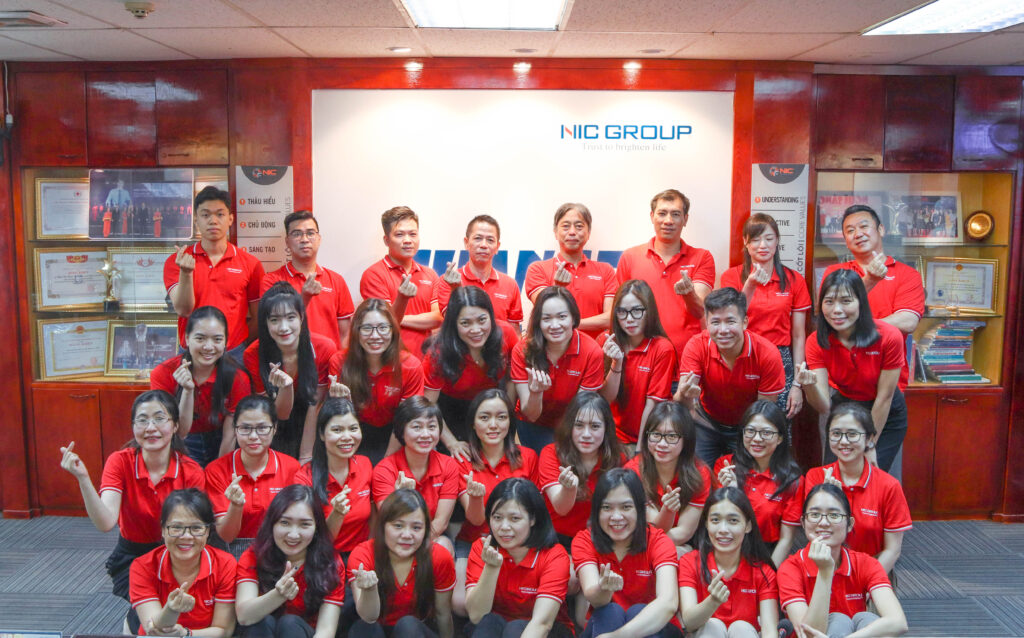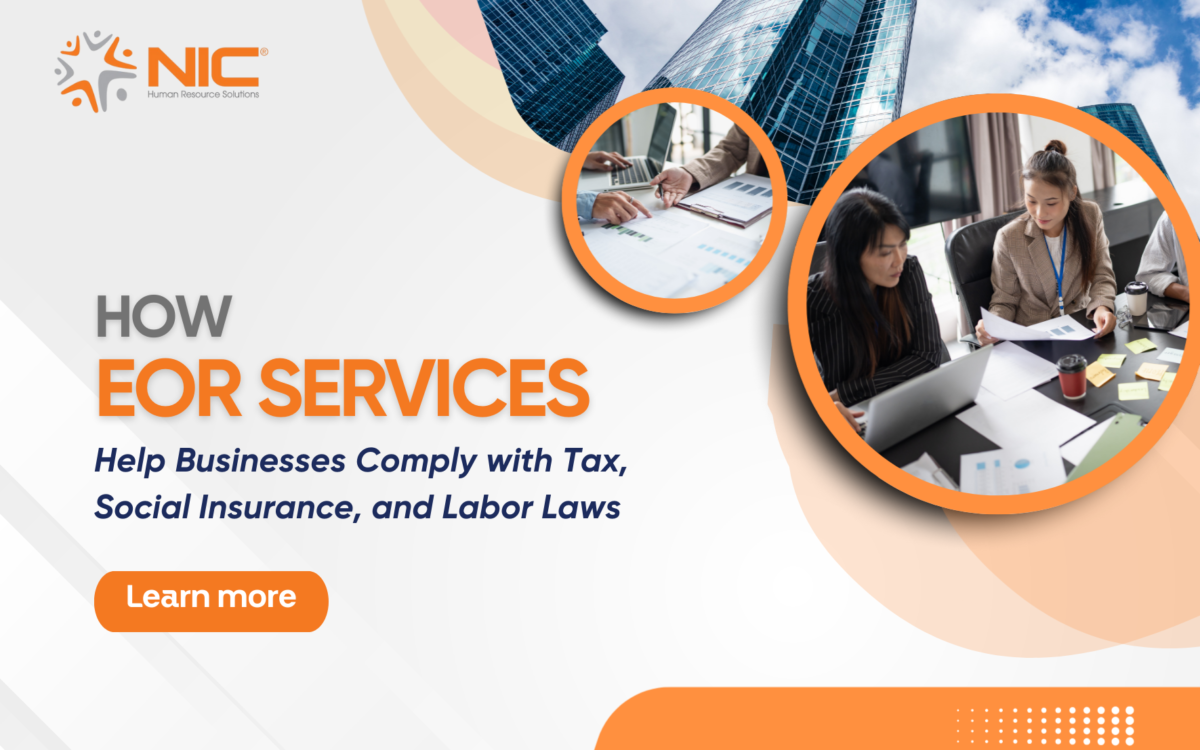Vietnam Employment Law 2025: Key Updates Businesses and Employees Need to Know
15/07/2025
From January 1, 2026, Employment Law No. 74/2025/QH15 officially comes into effect, replacing the 2013 Employment Law. This comprehensive amendment aims to modernize labor and employment policies, improve the unemployment insurance system, and sustainably enhance the labor market’s supply-demand matching.
With over 90 amended and supplemented articles, Vietnam Employment Law 2025 not only affects workers but also imposes new requirements and presents new opportunities for businesses and recruiters. In this article, NIC Global highlights key changes to help both employers and employees prepare proactively.

1. For the first time, UI is expanded to non-contract workers Vietnam Employment Law 2025
A breakthrough change allows freelancers, gig workers, and temporary workers, those without formal labor contracts, to participate in unemployment insurance (UI) voluntarily.
What does this mean?
- For 16+ million informal workers in Vietnam, it’s the first opportunity to receive income protection during unemployment.
- Businesses outsourcing work or hiring freelancers should understand these workers’ new rights and obligations to avoid legal risks.
2. Employers are encouraged to support vocational skill development Vietnam Employment Law 2025
Vietnam Employment Law 2025 encourages businesses to:
- Provide skills training.
- Cooperate with national agencies to assess and certify employee skills.
Benefits for businesses:
- Tax incentives or financial support for retraining workers, especially the unemployed.
- Employees can be recognized for hands-on experience without formal education.
- Easier internal capability mapping and talent utilization.
3. Greater flexibility in UI benefit procedures
The new law streamlines eligibility and the claims process for unemployment benefits, including:
- Online UI applications using digital signatures and e-documents;
- Shorter processing times;
- Accumulated UI contribution periods recognized for re-entering workers;
- Incentives for early return to work.
- Flexibility for multi-job workers to choose a preferred UI payment location.
Note: Companies must update their HR teams to guide employees correctly, especially those with project-based or frequently shifting workforces.

4. Establishment of a National Labor Market Database
The law mandates the creation of a centralized labor market database, integrating data across ministries, local governments, and businesses.
What does this mean for businesses?
- Easier job posting and access to talent pools;
- Insights on workforce trends for strategic recruitment and training.
- Reduced mismatch between labor supply and demand;
- Increased transparency and efficiency in the labor market.
5. Enhanced role and standards for employment service centers
Public and private employment centers must now meet operational standards to receive policy support.
New functions include:
- Career counseling;
- Job matching services;
- Short-term skills training;
- Local labor market forecasting.
Notably, the law promotes public-private partnerships (PPPs), enabling HR providers like NIC Global to collaborate with the government to boost employment support services.
6. Government support for businesses to maintain jobs
A new National Employment Fund will provide financial support to:
- Struggling businesses are retaining their workforce.
- Enterprises retraining or reskilling employees;
- Job platform and pilot employment model initiatives.
Benefit: Employers can proactively access these packages to reduce HR costs during economic downturns or crises.
7. New regulations for employment service providers
Companies in recruitment, headhunting, or outsourcing must now:
- Meet legal capital, professional staffing, and licensing requirements;
- Obtain operational licenses and disclose service information;
- Face strict penalties for contract breaches or poor service quality.
HR service providers must review their legal documentation and operational compliance to avoid penalties or suspensions.
8. Official recognition of practical skills
The law formalizes a National Skills Qualification Framework, recognizing hands-on experience, not just formal education.
These benefits:
- Workers without formal schooling, who can now earn official skill certifications;
- Employers who can build fairer promotion and salary frameworks based on actual competencies.
Especially valuable in manufacturing, engineering, and logistics sectors, where real-world experience holds high value.
9. Stronger labor inspections, penalties, and transparent reporting
Authorities are now required to annually publish statistics on employment, unemployment, and UI policy effectiveness.
Labor inspections will:
- Monitor accurate UI declarations and workforce changes;
- Penalize UI evasion, delayed contributions, or false reporting.
Businesses must ensure accurate reporting and UI compliance to avoid fines or legal issues.
What should businesses do now? Vietnam Employment Law 2025
Vietnam Employment Law 2025 is not just another regulation—it’s a strategic push toward a more transparent, modern, and effective labor market. With sweeping changes in policies, eligibility, and compliance obligations, both employers and workers must act now to:
- Optimize HR management costs
- Stay competitive in talent acquisition
- Protect legal rights for the workforce
NIC Global – Your HR Transformation Partner Under the New Law Vietnam Employment Law 2025
With 20+ years of HR and labor law consulting experience, NIC Global is committed to helping your business adapt and thrive:
- Training and updates on Vietnam Employment Law 2025
- Legal-compliant HR structure consulting
- Outsourcing, headhunting, and payroll services are aligned with new regulations
Let NIC Global support your transition toward a compliant and future-ready workforce.

For contact and support:
Facebook: NIC Global – Human Resource Solutions
LinkedIn: NIC Global Sourcing JSC
Website: www.nicvn.com
Email: info@nicvn.com
Hotline: (+84) 981.23.43.76
Address:
- Hanoi Office: No. 3A Thi Sach, Pham Dinh Ho Ward, Hai Ba Trung District, Hanoi, Vietnam
- Ho Chi Minh City Office: Dakao Center Building, 35 Mac Dinh Chi, District 1, Ho Chi Minh City, Vietnam
See more:
Payroll service
Staffing service
EOR service






